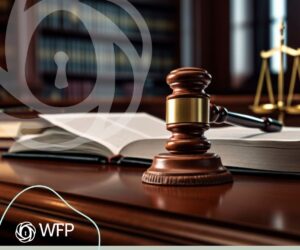Starting a business is exciting. Many entrepreneurs choose the simplest path, opening their doors as sole proprietors. It feels easy, inexpensive, and straightforward. But what seems like a convenient choice can come with hidden risks. When you operate as a sole proprietor, there is no separation between you and your business. That means every dollar, every debt, and every liability is directly tied to you personally.  If you think being a sole proprietor keeps things simple, it may be time to look closer at what you are really putting on the line.
If you think being a sole proprietor keeps things simple, it may be time to look closer at what you are really putting on the line.
Personal Liability and Financial Risk
The biggest danger of being a sole proprietor is unlimited personal liability. Since the business and the owner are legally the same, there is no shield between personal and business assets. If the business is sued, or if debts cannot be paid, creditors can pursue your personal bank accounts, your home, your car, and even your future income. This lack of protection can turn one business mistake into a personal financial disaster.
Difficulty Raising Capital and Growing
Sole proprietorships may also struggle when it comes to growth. Investors and lenders often prefer businesses with formal structures such as LLCs or corporations. These structures create more credibility and reduce risk for those providing funds. A sole proprietor may find it harder to secure loans or attract partners, which limits expansion opportunities and makes it more difficult to scale.
Taxes and Record-Keeping Challenges
Another issue is taxation. Sole proprietors must report all business income and expenses on their personal tax returns. This can create complications, especially if finances are not carefully separated. Many sole proprietors unintentionally commingle funds, which not only makes bookkeeping more difficult but also weakens the already thin line between personal and business liability.
Better Alternatives for Protection
While being a sole proprietor might seem simple, it often leaves you exposed. Forming a Limited Liability Company or corporation creates a separate legal entity. This structure protects personal assets, helps with credibility, and allows for better tax planning. In some cases, placing business ownership into a trust can provide even greater protection. These strategies are not just for large companies. They are essential tools for anyone serious about protecting what they have built.
Protect Your Future Before It Is Too Late
Operating as a sole proprietor may feel easy in the short term, but the risks can far outweigh the benefits. By choosing a structure that separates your personal life from your business obligations, you gain peace of mind and the freedom to grow without risking everything you own.
At WFP Law, we help business owners make smart choices that protect both personal and professional assets. If you are currently a sole proprietor or considering starting a business, now is the time to explore safer options.
Visit wfplaw.com/contact-us to schedule your consultation and take the first step toward protecting your future.
